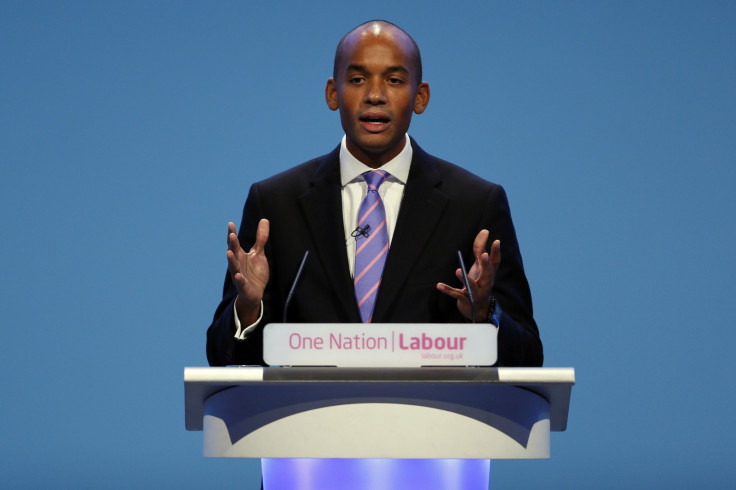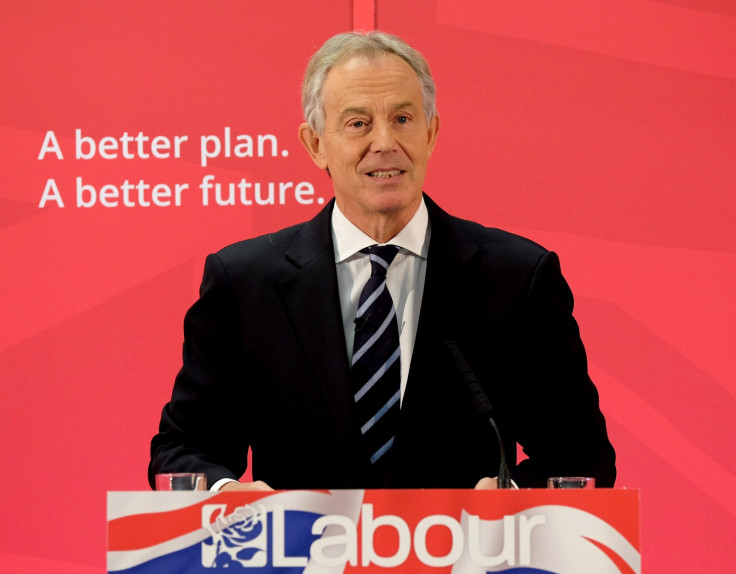Margareta Pagano: Labour leadership bidders, John Lewis has answers on distributing wealth
They still don't get it, do they? All of Labour's aspiring leaders, including the likes of Tristram Hunt, keep trotting out the same old canards claiming Labour lost because the party bashed the rich too much and didn't appeal enough to the striving middle classes.
Chuka Umunna, who was one of the few aspirants to have declared himself to be a contender before he dropped out from the race, suggests that if only Labour had done more to show it is on the side of the wealth creators, that it really does like small businesses and has no problem with good bankers, only the size of their bonuses, then all would be hunky dory.

For his part, Hunt says Labour failed because it didn't reach out to the so-called middle classes who shop at John Lewis and Waitrose; although he should have added who also shop at Lidl, Aldi, Poundland and maybe Tesco; we are all supermarket tarts today.
Hunt is sort of right; of course Labour should appeal to Waitrose shoppers just as they should also be attractive to those who shop at Aldi or, for that matter, at Audi.
But what Hunt, along with Andy Burnham, Liz Kendall and Yvette Cooper – and anybody else who may throw their hats into the ring – must do if they are to have any hope in heaven of coming up with a new and attractive political economy to entice voters back to them is to look at the structures of these businesses.
What they should do is go out and talk to the staff at John Lewis – the 70,000 partners – in far more detail instead of worrying about its shoppers. They should dig more closely into how the partnership works and come up with better ways of encouraging more companies to set up similar business models, which are such an effective way of distributing wealth.
Ironically, one of the big achievements of the coalition was to push through tax breaks to help companies who want to encourage wider share ownership and profit sharing, and the number of businesses with employee-share ownership has shot up.
Oddly enough, 13 years of Labour government did nothing to encourage wider share ownership. Labour and the unions have always been highly suspicious of such innovative ideas, if not downright sniffy.
Narrow-minded view at roles within companies
A few years ago, I chaired a panel debate in Westminster on wider share ownership, which included top John Lewis executives and a former Labour cabinet minister who clearly hadn't a clue how the JL partnership worked and hissed rather rudely at one stage during the discussion about how it was just another way of paying people bonuses.
The unions have been similarly narrow-minded about looking at their roles within companies. Rather than just bang on about wage increases, they should be pushing for better worker representation and, indeed, wider share schemes for the employees they represent.
Giving more shares to workers in listed companies is understandably a sticky subject for unions. Brendan Barber, former head of the TUC, once told me he felt it was dangerous to encourage shop-floor ownership because "what happens when shares fall or companies go bust?".
Well, that's risk and capitalism for you, and if you want to play the game, then it's all or nothing. Maybe it's not the Labour Party's job to get or adapt capitalism; when it does, as under Tony Blair, it often gets it badly wrong.
Inequality of incomes rose more sharply under the Blair government than at any time over the previous 30 years, particularly the huge rise in pay of CEOs and share executives in listed companies. The banks got bigger and more powerful, the manufacturing base was allowed to drip away, apprenticeships and skills were sidelined and City regulation became lighter than ever.

If Labour's aspirants want a fairer, entitled society, they can't afford to go back to copying Blair. Nor can they ever go back to the class warfare type rhetoric of the deluded Ed Miliband. The challenge for Labour is to find a far more radical reformist agenda.
Rather than penalise the banks with levies and ridiculous bonus claw-backs, they should be looking at breaking them up – stop government subsidising investment banking –while encouraging alternative finance such as crowdfunding and P2P.
Meanwhile, entrepreneurs and small companies need even lower taxes and tax breaks, on equity not just debt, and unions should be encouraged to work even more closely with management to improve skills as well as productivity. That's just for starters.
If Hunt and co parrot the New Labour speak of the Blair years, they will fail. Why would voters go for Blair-lite if they can go for the real McCoy – David Cameron?
Indeed, if the prime minister is really smart, the Conservatives could put Labour out of business for at least a decade by becoming the main party of the working classes. Cameron has started well by talking more to "working" families. Now he needs to go deeper and look at more structural reforms that can build a real One Nation Toryism and, who knows, relaunch his Big Society.
Margareta Pagano is a business journalist who writes for the Independent and the Financial News. Follow her on Twitter @maggiepagano.
© Copyright IBTimes 2025. All rights reserved.






















